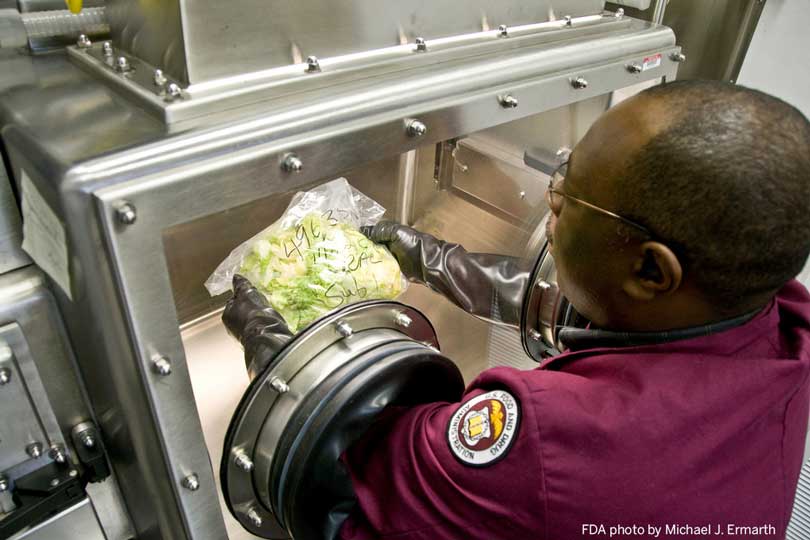By Jessica Domel
Multimedia Reporter
The Food and Drug Administration (FDA) has linked a deadly E. coli outbreak to an irrigation canal in Yuma, Arizona, and while questions remain, the agency is moving forward to prevent future outbreaks.
“We’re committed to taking necessary actions to prevent future outbreaks like this and to improving the safety of leafy greens available in the marketplace,” Dr. Scott Gottlieb, FDA commissioner, said. “Since the next romaine growing season for the Yuma region is underway, it’s critical for all of us to understand what happened, so we can identify the changes that can prevent future outbreaks and reduce the scope of any problems that could arise.”
Five people died and hundreds were sickened earlier this year due to contaminated lettuce from Yuma.
It was the largest E. coli outbreak in the U.S. in a decade, according to FDA.
“The environmental assessment issued (Nov. 1) confirms the presence of E. coli O157:H7 in three samples of irrigation canal water collected as part of this investigation in the Yuma region,” Gottlieb said. “It considers that the most likely way the romaine lettuce became contaminated was from the use of water from the irrigation canal, since the outbreak strain was not found in any of the other samples collected in the region.”
It is unclear how the irrigation canal was contaminated and how that water then contaminated the lettuce.
There is no evidence, according to the report, that any other produce grown in Yuma was affected by the outbreak.
“We know just how important it is to continue collaborating closely with industry and our regulatory partners to ensure that leafy greens are safe,” Gottlieb said. “To assist with these efforts, our environmental assessment recommends a number of steps that can be taken to reduce the likelihood of another tragic outbreak from occurring in the future. Working with the produce industry to further reduce the risk of outbreaks is a key priority for the FDA.”
Those steps include exploring ways to standardize record keeping by the industry and FDA, reducing the time for trace back investigations, improving response times, evaluating regulatory options and considering appropriate enforcement actions against anyone in the supply chain who may have unsanitary conditions.
“We strongly encourage the leafy greens industry to adopt traceability best practices and state-of-the-art technologies to help assure quick and easy access to key data elements from farm to fork,” Gottlieb said. “We also strongly encourage the leafy greens industry to explore modern approaches to standardized record keeping and the use of additional tools or labels on product packaging that could improve traceability.”
FDA now plans to collect and analyze romaine lettuce samples through its surveillance sampling. If a sample is contaminated, the agency will then follow-up to see if any action is needed along the supply chain to correct the issue.
“We recognize and appreciate the efforts that the leafy greens industry has taken to date. But we know more must be done on all fronts to help prevent future foodborne illness outbreaks,” Gottlieb said. “I remain committed to investing in the FDA’s food program and applying our food safety expertise as we work to better safeguard the U.S. food supply.”
FDA’s environmental assessment of the E. coli outbreak is available here.

